Abby Landis has seen a sign from above.
SOMETHING WRONG? the heavens call to her.
Landis looks up, angels singing, and there She is: The icon herself, the one who balances the scales of justice, the one who promises to remedy the people’s personal injuries, Mona Lisa-smiling down at her from a 14 by 48-foot billboard, flatly clutching a baseball bat, as if to say, “I’ll fight for you, Abby, and I’ll do it with this blunt object signed by your favorite Giants player. No need to worry now.” There’s only one thing left to do.
“It’s like an omen of a good day,” shouted Landis over packed crowd behind her, at The Stud’s Whatever party on Saturday night, where Phoong made a much ballyhooed appearance as guest of honor in a pinnacle of camp programming. “Now it’s like she’s materialized just for me. Today is the most iconic day of my life!”
Donning a ‘90s rap-style t-shirt honoring the Sacramento-based personal injury lawyer she made just for the occasion, Landis was one of the first in line (and I’m using the description “line” very lightly) when Phoong took the stage around 11pm at the back of The Stud’s new space at 1123 Folsom Street in SoMa.
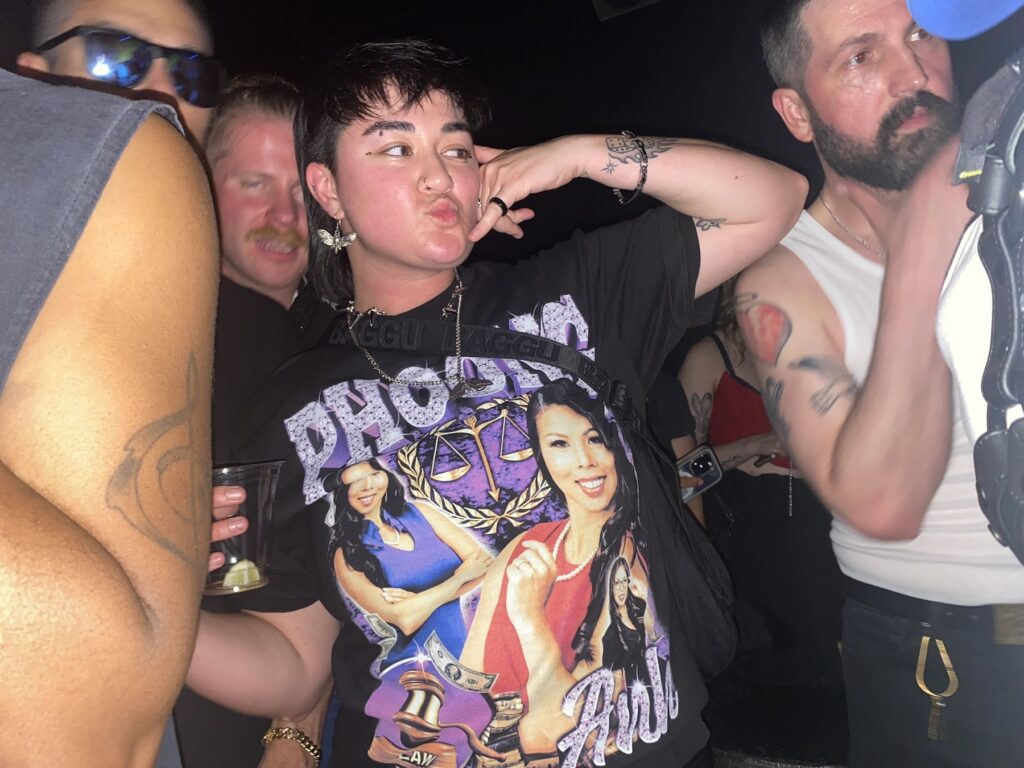
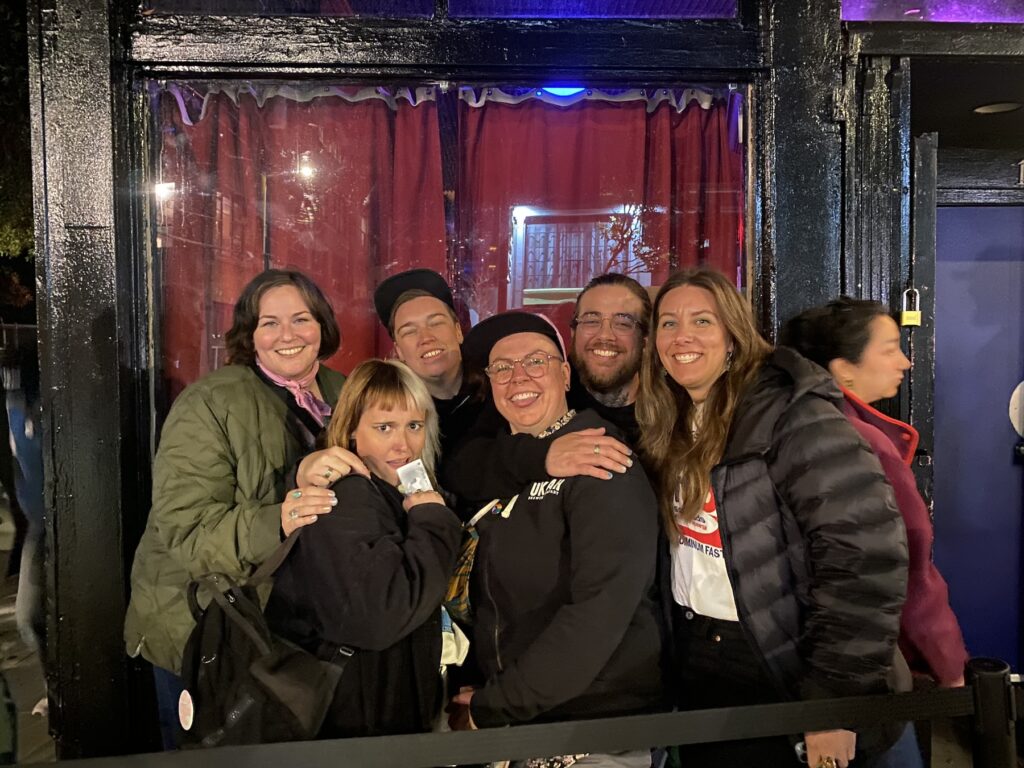
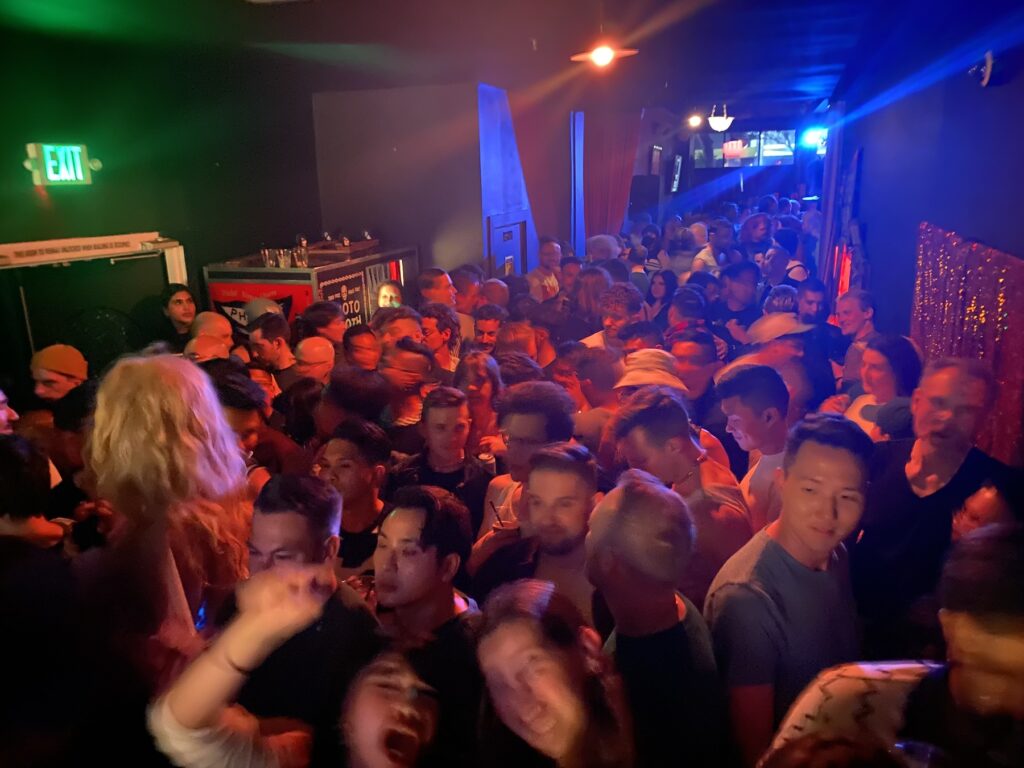
In 2020, the historic San Francisco queer bar shuttered its doors on the corner of 9th and Harrison Streets, where it had been operating since 1987. Two weeks ago on April 20, The Stud reopened on Folsom with an inaugural party, after a couple sneak peeks for those in the know.
There must’ve been 200-something devotees of the attorney, whose billboards dot California cities and highways, anxiously waiting to hop on stage and get a photo. Around 300 more patrons filled the rest of the space, which is bigger than The Stud’s former location. Before the doors opened at 9pm, the line wrapped around the block.
“When [party organizers Adam Kraft and Florida Man] asked me to do this, I thought it was going to be a small thing,” Phoong told me in the green room, minutes before she took the stage. “But this is huge! I feel like, wow, little old me? I just love the community for this. It’s surreal.”
Rolling with an entourage of friends, family, coworkers, and a very large security guard, Phoong, frankly, was not at all giving “Little old me?”: She turned out in a black steampunk corset with brass hardware and purple lining, black leather pants, black over-the-knee stiletto boots, stacks of gold bracelets, lavender streaks in her hair, and magenta nails and lips. She also has braces, which is iconic.
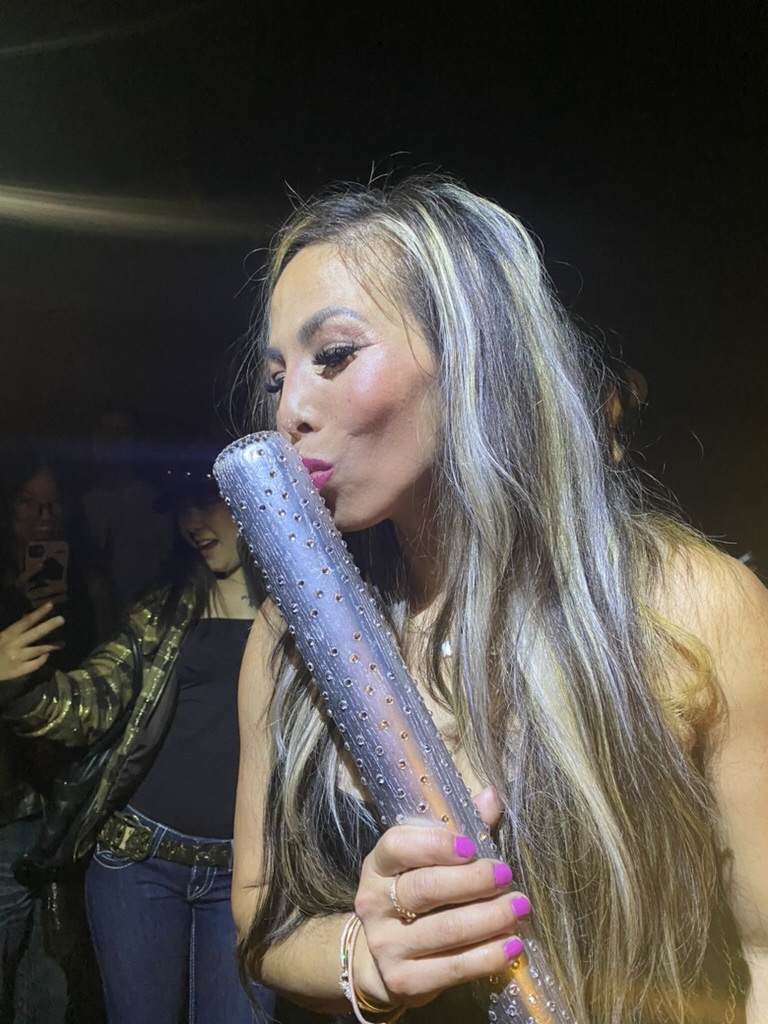
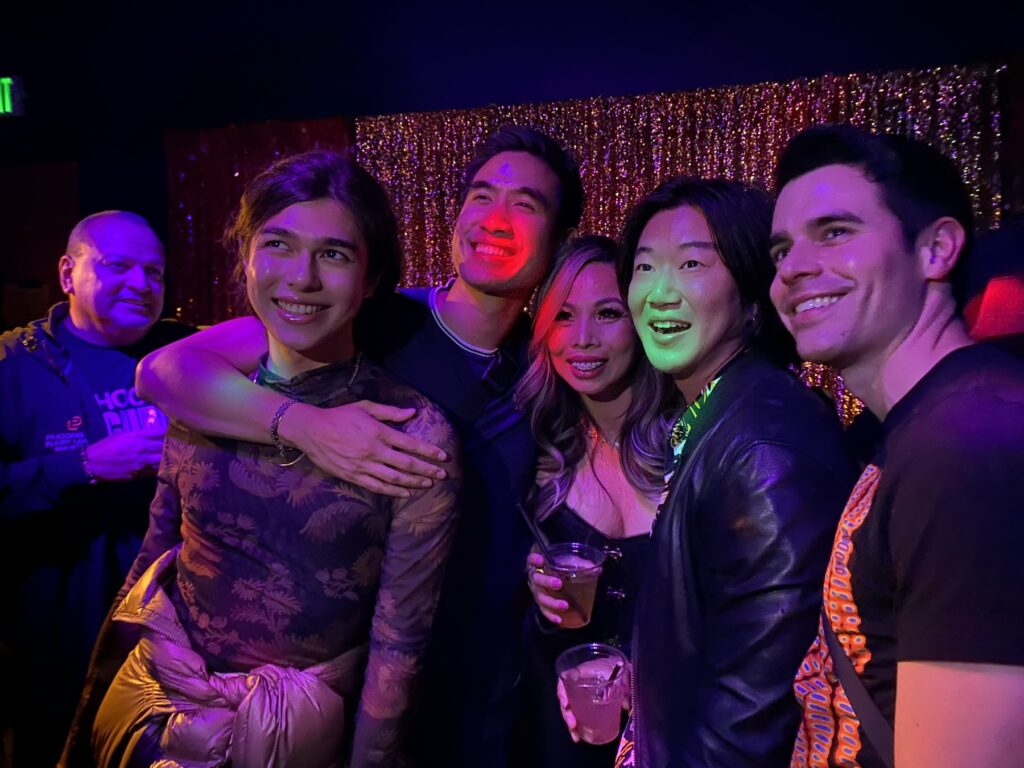
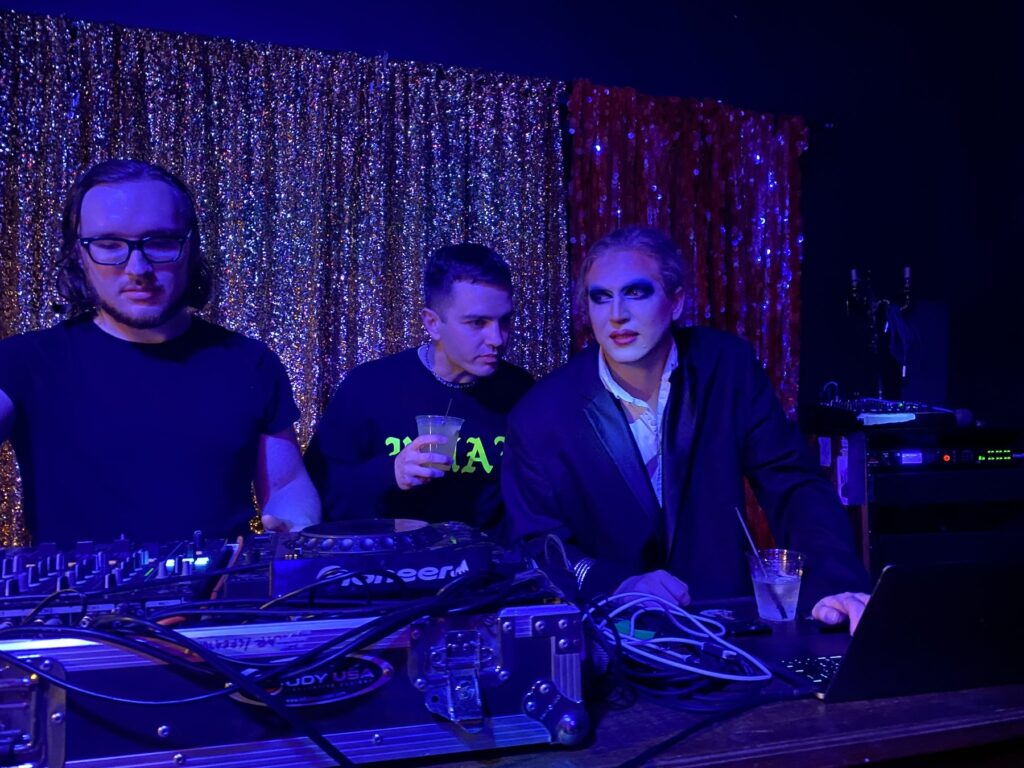
As personal injury lawyers go, Phoong runs a pretty high profile operation, obviously. The San Jose native leads a 62-person staff, frequents posh charity events, posts massive advertisements throughout the region, and inspires a kind of devotion among locals that proves whose a real one and who’s possibly an out-of-towner.
No hate to Sweet James and all, but we just don’t know you like that.
“The moment they posted Anh was going to be here, I had to come,” said Oakland resident Christopher Kim. “I thought it was just me and my Asian friends who were obsessed with her, but it turns out everybody loves her. It’s so funny, so subversive, so dumb. It’s just the most amazing thing.”
As I pushed through the club, past all the happy, sweaty, dancing partygoers, I could hear blips of conversation that captured the vibe of the night, an intimate and profound silliness.
“I came here for one reason, and that is my queen,” raved one person, pointing to Phoong on the stage.
“Yeah, you better get down here, Anh Phoong is here,” barked another, all business, into their phone.
“Yes, queer icon!” people cheered every time she moved a muscle on stage.
As far as I can tell, Phoong is not queer—her husband accompanied her to the party, along with her brother, six of her employees, and about 20 of her friends—but that’s not really the point. The point is that San Francisco loves her. The point is that her photo, her slogan, her eyes that loom over San Francisco like T. J. Eckleburg, are part of the city’s culture, a culture that Kraft and Florida often find to be either discredited, misrepresented, or simply ignored by the snobs in “nightlife cities” like New York or Los Angeles.
But that’s whatever, says Kraft. San Francisco is doing its own thing.
“For better or for worse, we don’t have a lot of eyes on us here. We have room to experiment,” said Kraft, a DJ and curator of the party series Fake and Gay. “So [for the Whatever party] Florida and I wanted to create an experience where there were no DJs, no drag queens. In the absence of those things, what is the entertainment? We didn’t really come with an intended result. But I’m sure it’ll land. It’s whatever.”
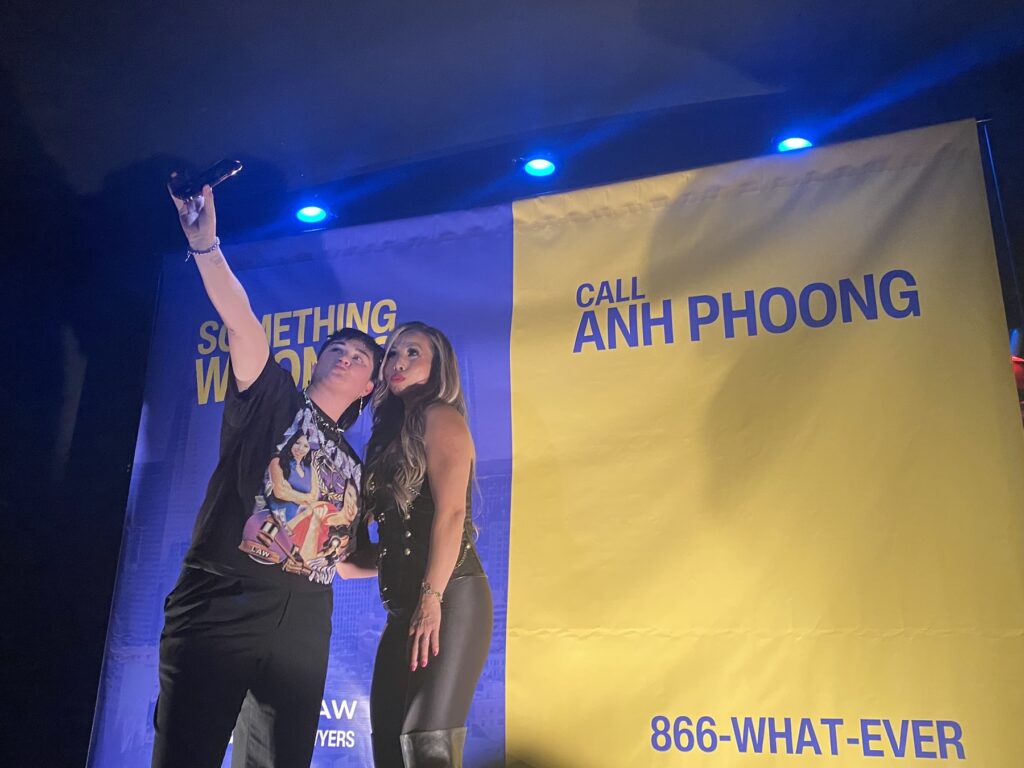
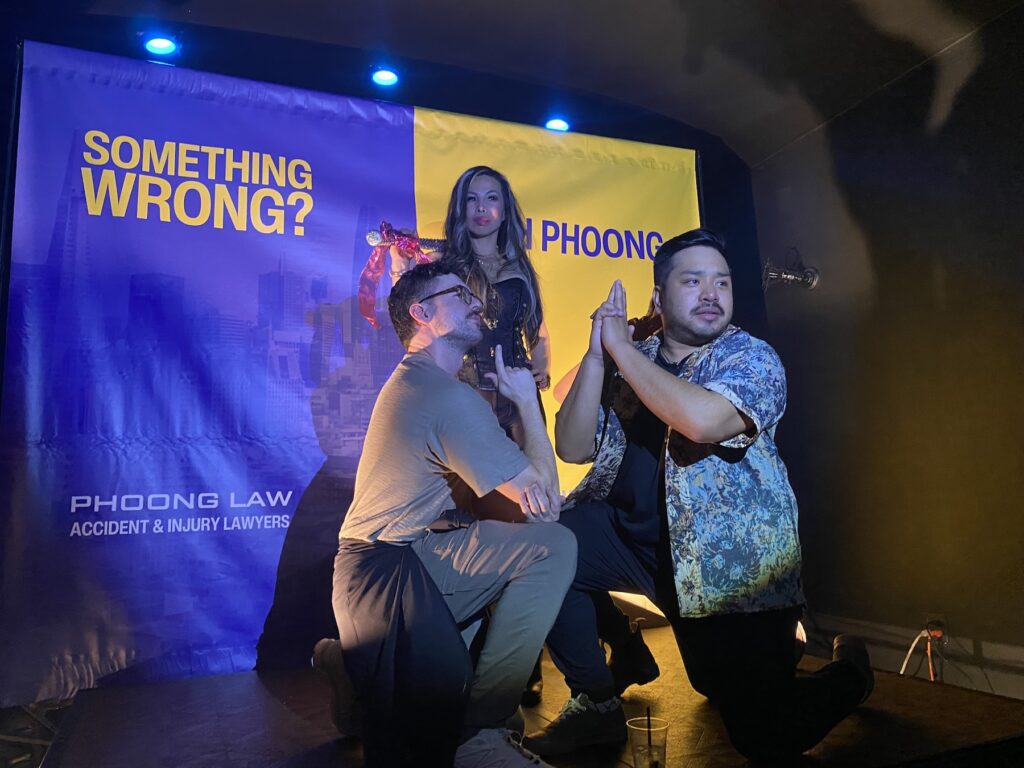
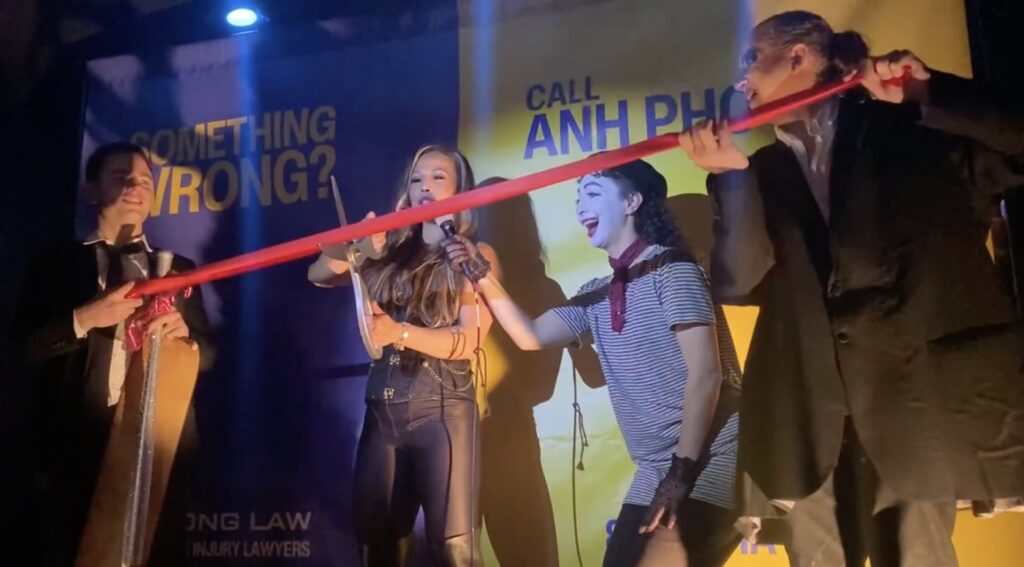
Considering there were people who gladly waited nearly an hour just to take a photo with Phoong and her gem-studded baseball bat, courtesy of The Stud collective, I’d say it landed.
So did the other non-entertainment entertainment for the night: The generative AI video booth, the AI songs like “I miss my phone” and even a special theme song for Phoong’s appearance playing karaoke-style on the TVs mounted on the walls, the “hot coders” (actual software engineers engineering actual software while go-go dancing on platforms), and the mime that sat on a barrel for the first hour of the night, looking terribly sad (“Sad Hour”), but then returned around 1am in a much better mood (“Happy Hour”).
Kraft and Florida also debuted their first collaborative album, Whatever. Whatever has 15 tracks with names like “Anh Phoong in the House,” “Coders in the Green Room,” and “Stolen Vape.” They plan to put the album on Spotify and the visual album on YouTube in the coming days.
“This is like the event of the year,” declared SoMa resident and Amazon Alexa software engineer Rafa Martinez-Avial, who was, while dancing in Calvin Klein tighty-whities and suspenders, literally on-call for his day job. “I looked hot, I danced, I coded. I pushed a git commit. I’m happy! I’m getting ahead of the week.”
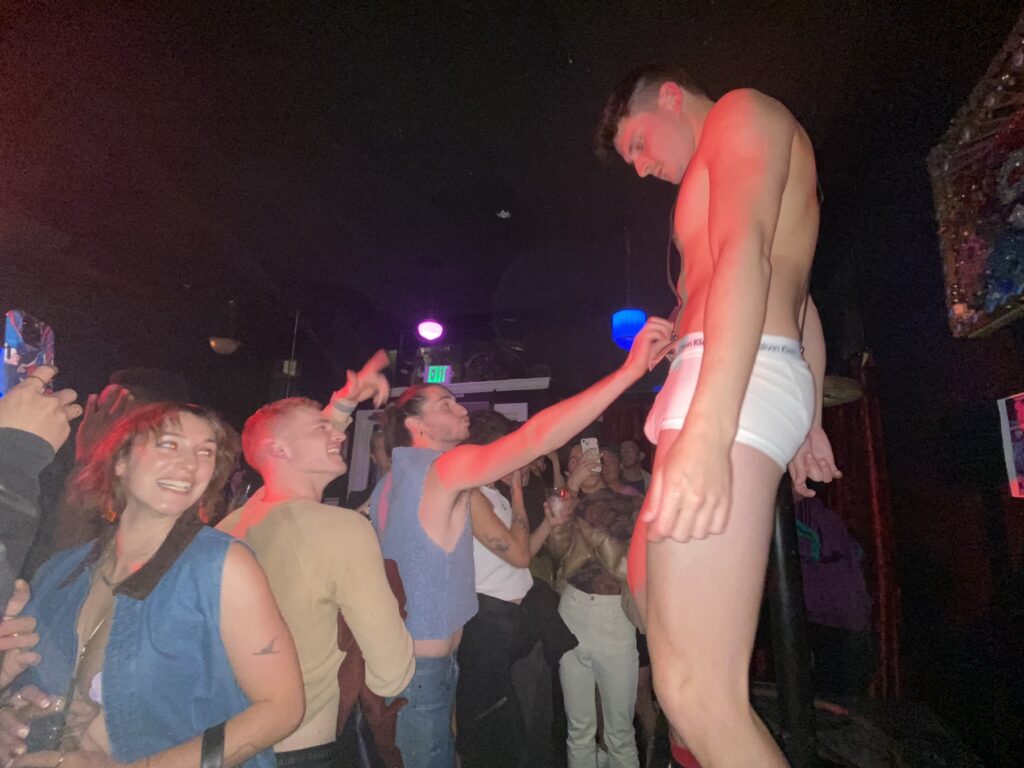
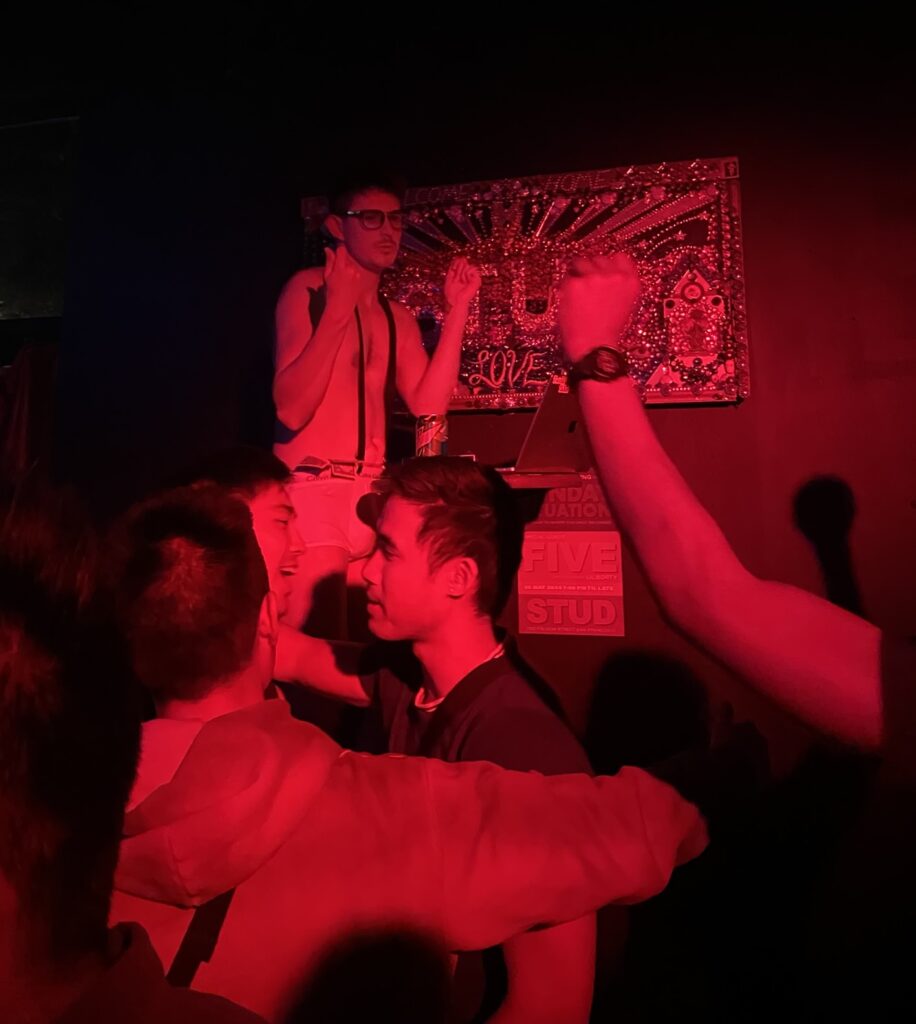
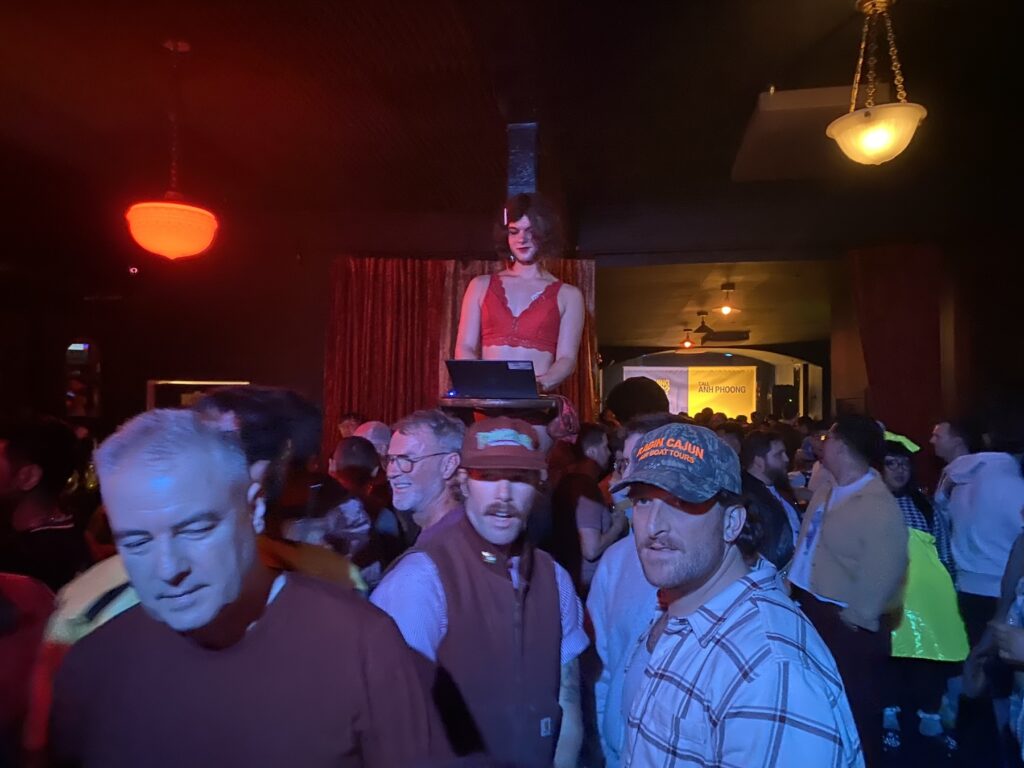
Eventually, the 17-person co-op that owns and operates The Stud (including 48 Hills Arts and Culture Editor Marke B.) will make room for more entertainment in the space. Nate Allbee, a founder of The Stud Collective, said that first on the renovations list is the demolition of the large industrial kitchen left over from the space’s former incarnation as a sports bar (and currently used as a green room) to make space for a proper stage and dressing area for drag performances.
That means that America’s Test Kitchen chef and freelance writer Garrett Schlichte, who prepared about 700 small bites—including caviar on potato chips (“Miss Phoong deserves caviar!” explained Schlichte), baby pavlovas with citrus reductions, mini peanut butter and marshmallow puff pastries, and single jelly beans—in the kitchen, would be the first and only chef to use the culinary facilities at The Stud in its new location.
To construct the stage, Allbee said they need to add about $50,000 more to the $400,000 they’ve raised for renovations so far via crowdfunding and individual investors.
“It feels like a betrayal to say this, but I think I like the new space even better,” Allbee gushed, looking around at the revelry in full swing. “The old space, she was like an old lady that we loved. But honestly it was a nasty, sticky cave. She was rotting. Now, it’s like, welcome, you can actually go to the bathroom here! Moving was absolutely the best decision. We would’ve never left.”
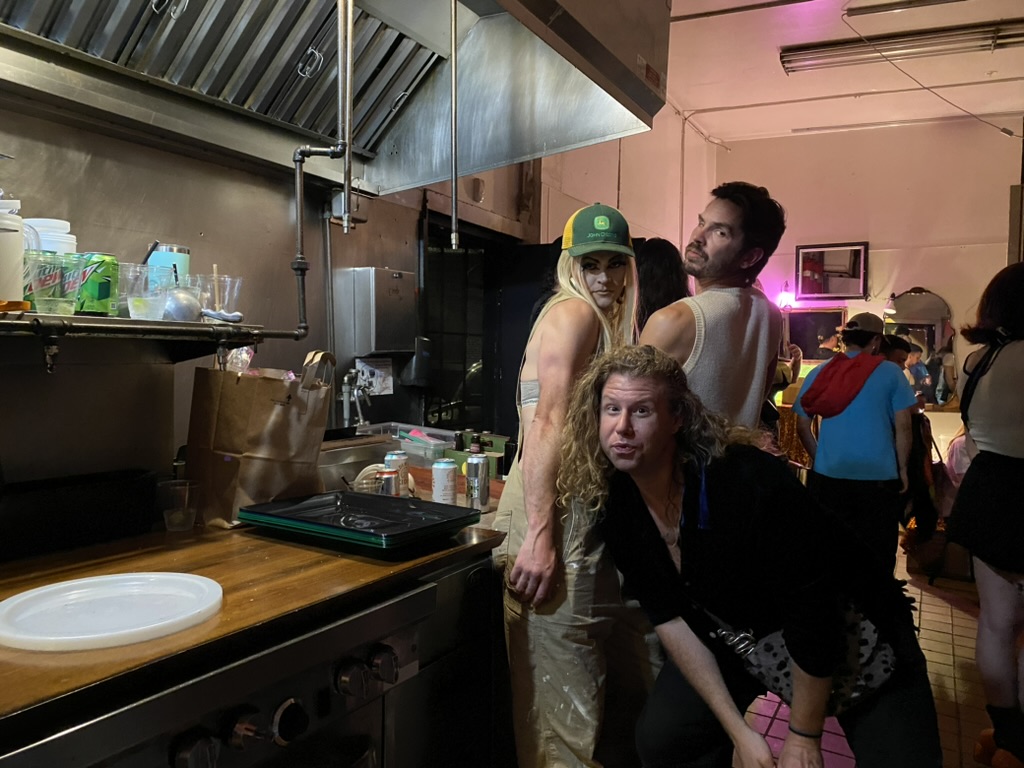
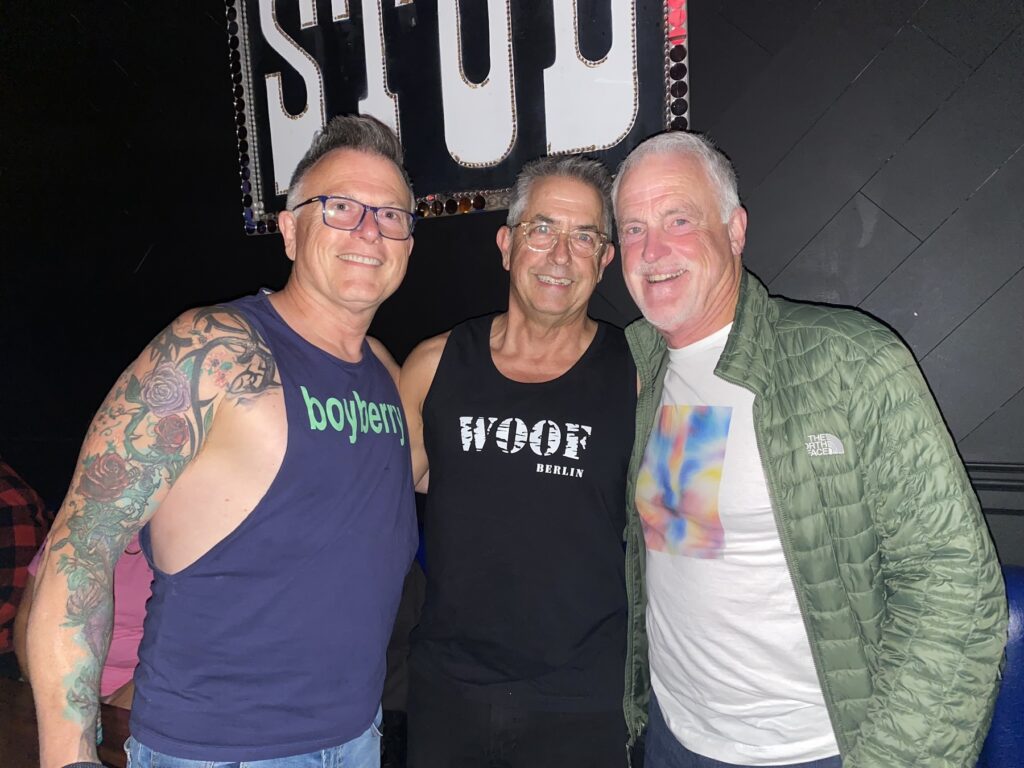
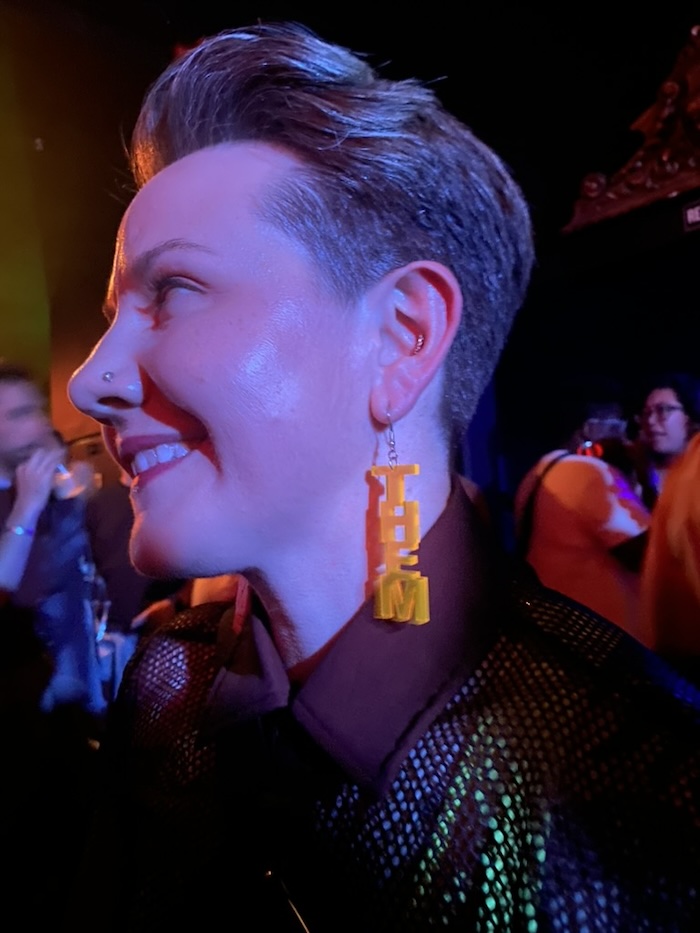
Allbee said that in the coming months, The Stud Collective will decorate the new space with historic Stud memorabilia from its many bygone eras, which they found in the basement of the 9th Street location while cleaning it out. Old signs, a wagon wheel, and “Victorian stuff” are among the ephemera.
Hopefully, lining the walls with The Stud’s history will help bridge the gap between past and present nightlife cultures in the city. Kraft and Florida said they’ve noticed a cultural disconnect between what Gen Z expects from going out and the way they actually party.
“We’d see people go out to drag shows but no one’s dancing,” said Florida, a drag queen herself. “That’s why we removed the ‘entertainment.’ We wanted to tap into the subconscious of ‘going out,’ because it’s more than entertainment. There’s a social aspect, a sexual aspect, an escapism aspect. We literally wanted everyone to be confused.”
Honey Mahogany, the former San Francisco Democratic Party chairperson and newly appointed director of the city’s Office of Transgender Initiatives, has noticed similar behaviors in the younger generations, but she seemed optimistic about the future of nightlife in San Francisco.
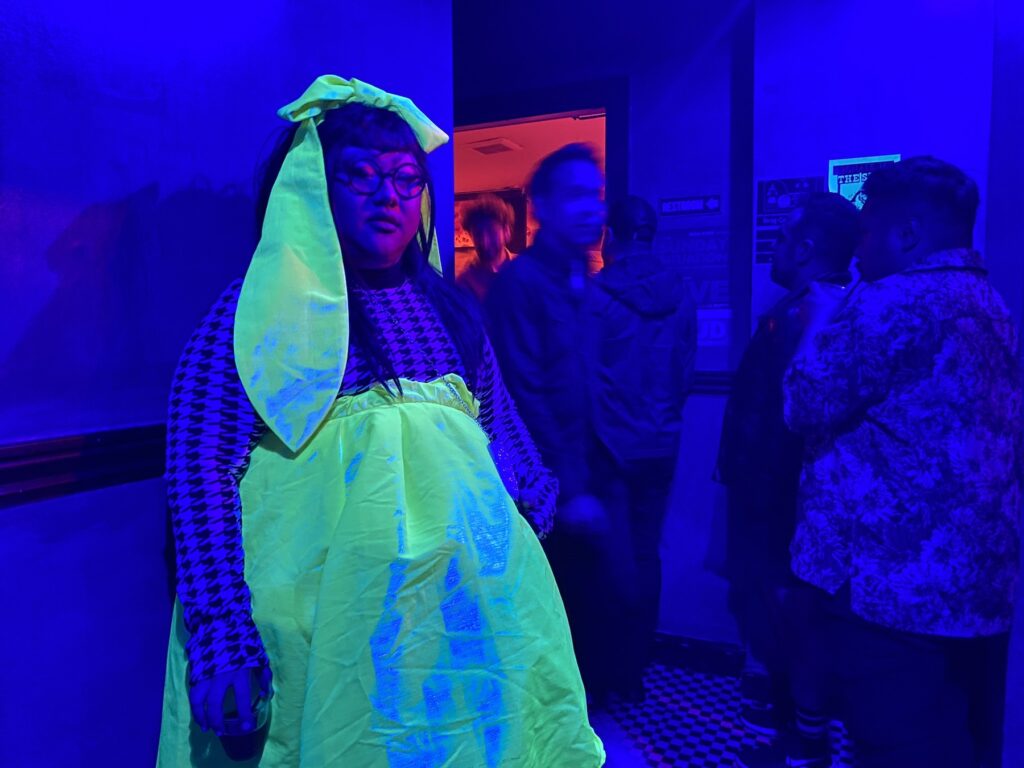
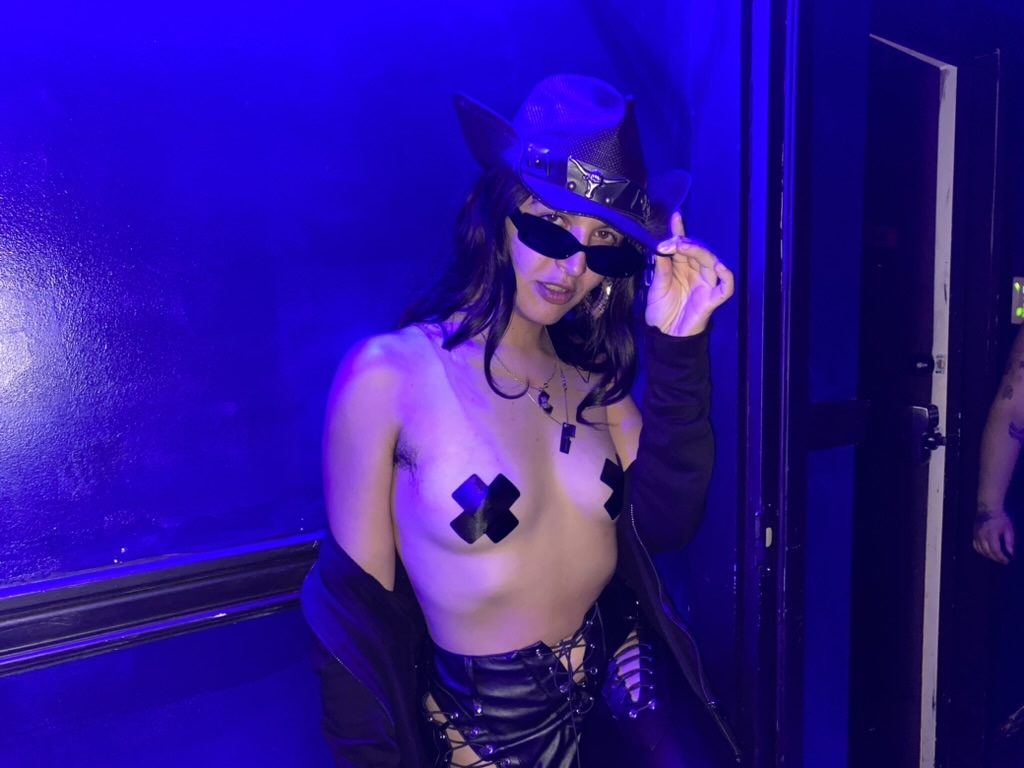
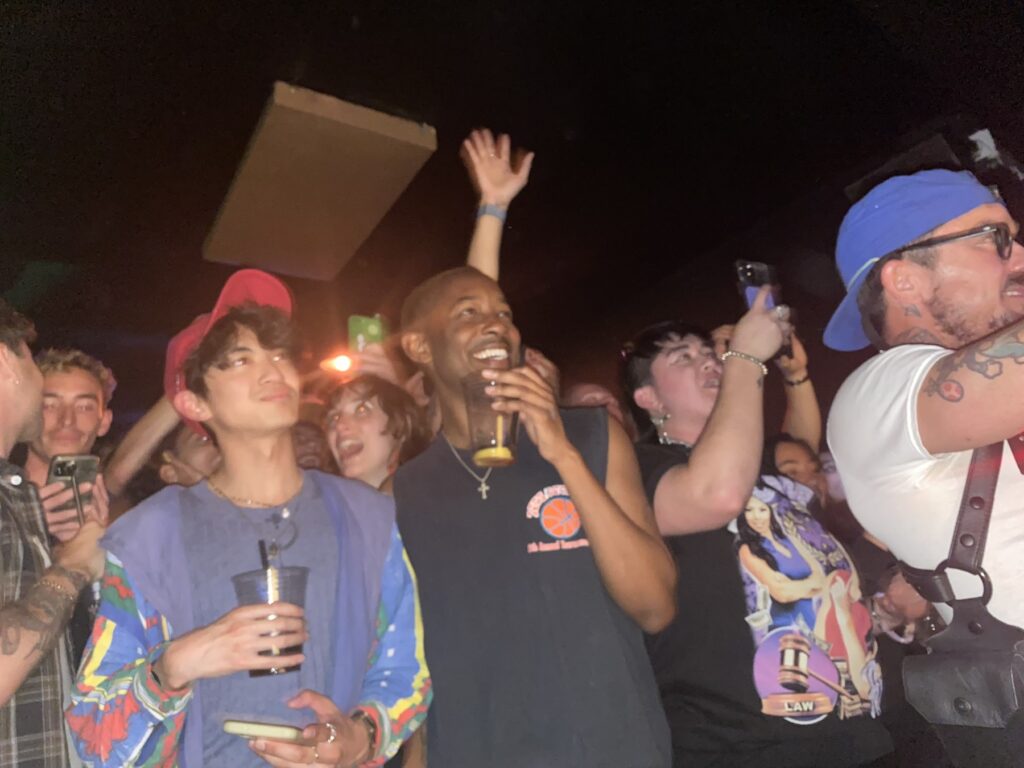
“It’s nice to see so many Gen Z and Millennials here, because there’s really a trend of young people just not going out as much anymore. Everyone’s at home, you know, doing their skin care,” said Mahogany. “We’re all into self-care now, but this, right here, is also a form of self-care.”
Aside from nurturing personal expression, a thriving nightlife scene would, of course, also bring economic benefits for San Francisco. On Friday, Mayor London Breed announced a plan to create the city’s first official “entertainment zone” downtown on Front Street between California and Sacramento Streets. The legislation, which will be presented to the Board of Supervisors on May 7, will allow restaurants and bars to sell alcohol for outdoor consumption during events and activations.
True to countercultural form, the day after the mayor announces a pro-entertainment stance, the oldest queer bar in the city throws a party that’s staunchly anti-entertainment. But it’s whatever. After four years without The Stud, everyone just wanted to party.
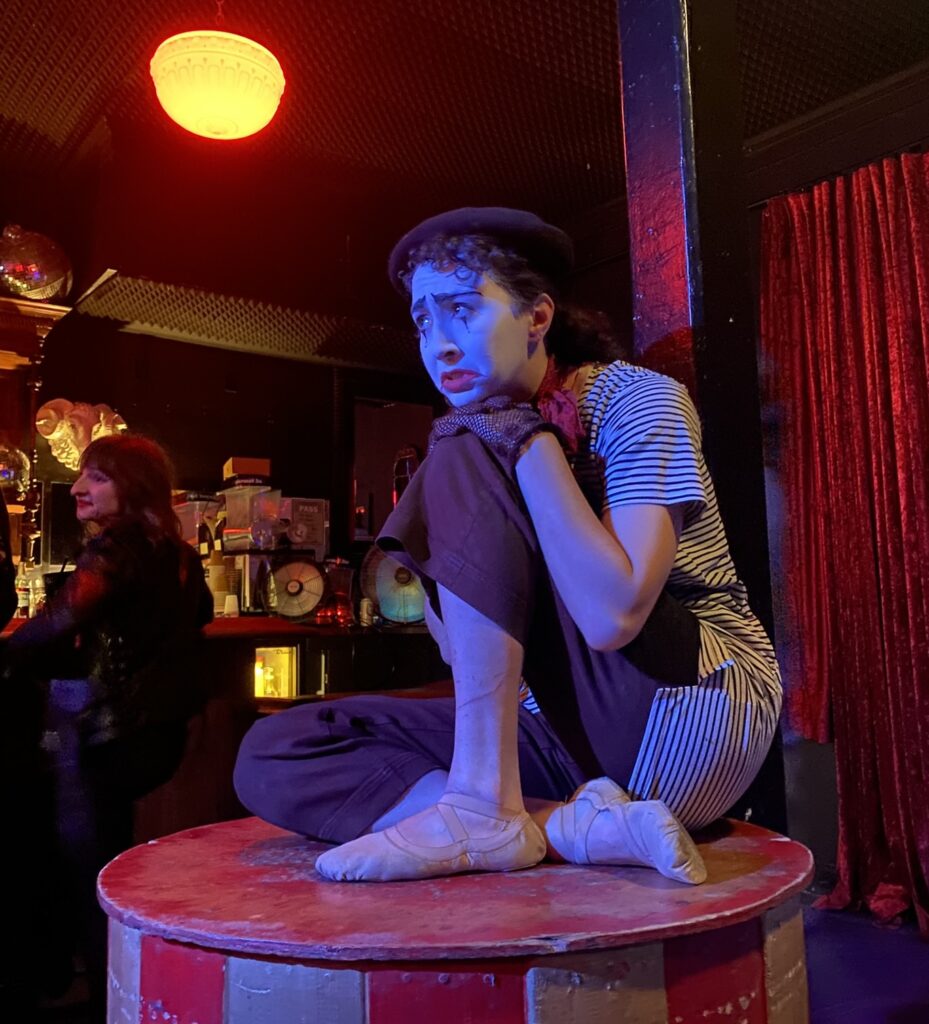
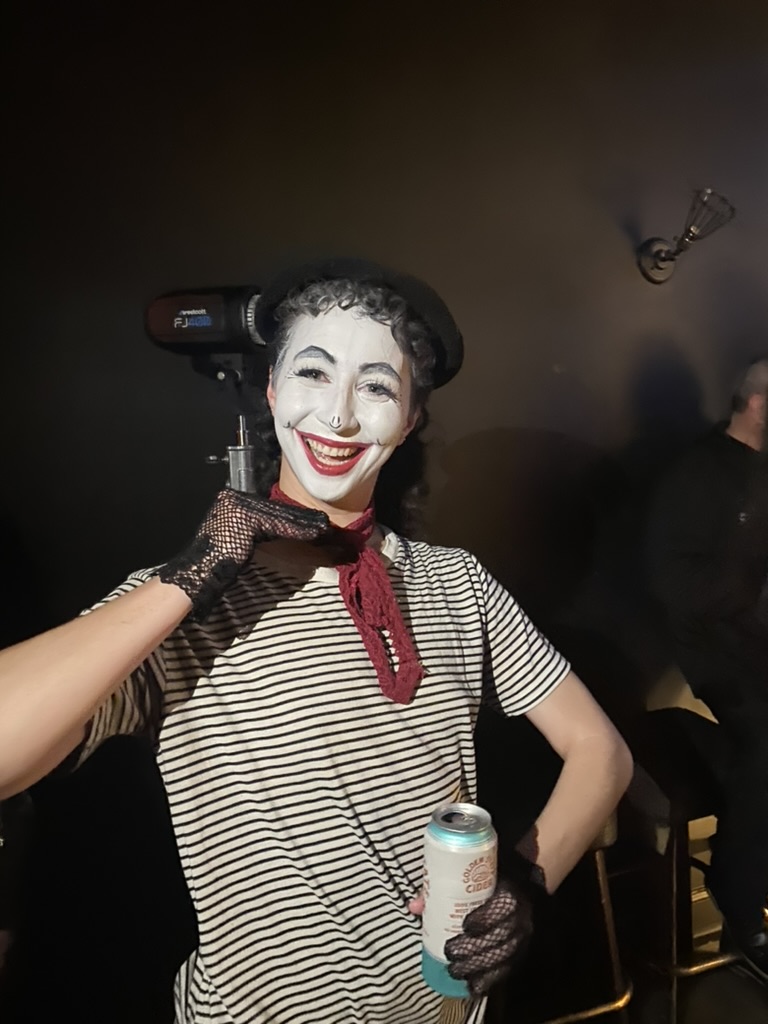
Among the crowd, I found veterans of The Stud’s ‘80s era, recent college grads, gays, lesbians, queers, straights, drag queens, mostly locals, a handful of visitors, tech founders, DJs, dog walkers, writers, photographers, content creators, yoga instructors, teachers, a tenor and a baritone from the San Francisco Gay Men’s Choir, friends, lovers, and the originator of the “entertainment zone” legislation, State Senator Scott Weiner.
And nothing was wrong while we worshipped Anh Phoong.








